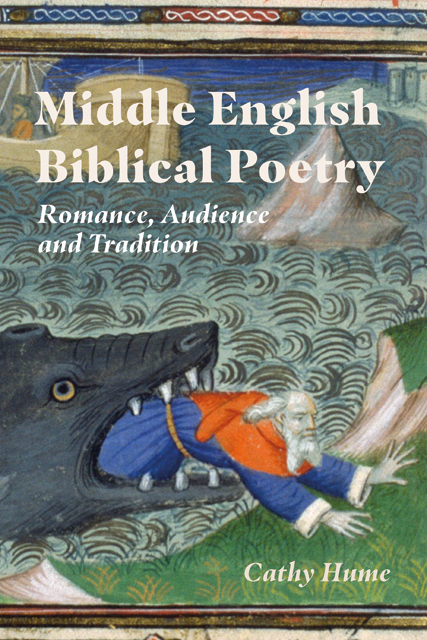Book contents
- Frontmatter
- Dedication
- Contents
- List of illustrations
- Acknowledgements
- List of abbreviations
- Note on translations
- Introduction
- 1 Iacob and Iosep: a happy tale of a knightly family
- 2 Two lives of Adam and Eve: exemplarity after the Fall
- 3 A Pistel of Susan: beauty in a Babylonian garden
- 4 Patience: anti-romance
- 5 Cleanness: household virtues, familiar sins
- Conclusion
- Bibliography
- Index of manuscripts
- General index
2 - Two lives of Adam and Eve: exemplarity after the Fall
Published online by Cambridge University Press: 04 January 2024
- Frontmatter
- Dedication
- Contents
- List of illustrations
- Acknowledgements
- List of abbreviations
- Note on translations
- Introduction
- 1 Iacob and Iosep: a happy tale of a knightly family
- 2 Two lives of Adam and Eve: exemplarity after the Fall
- 3 A Pistel of Susan: beauty in a Babylonian garden
- 4 Patience: anti-romance
- 5 Cleanness: household virtues, familiar sins
- Conclusion
- Bibliography
- Index of manuscripts
- General index
Summary
In around 1330, about fifty years after Iacob and Iosep’s manuscript, Bodley 652, the Auchinleck manuscript was created. Perhaps the most significant manuscript witness to Middle English literature, it is often thought of as an anthology of romances. Whereas Iacob and Iosep is the only English item in its manuscript, the Auchinleck Life of Adam and Eve is surrounded by English literature; and whereas Bodley 652 is deeply obscure, the Auchinleck manuscript has been celebrated, reproduced in facsimile, digitised and generally subjected to all forms of scholarly attention. The Auchinleck Life is one of two verse lives of Adam and Eve that I will be discussing in this chapter. They retell another episode from Genesis, but one that was (and still is) more culturally central in England and the Christian world. However, the primary source for both poems is not Genesis, but an apocryphal text that narrates the adventures of Adam and Eve after they were expelled from Paradise. Whereas the poet of Iacob and Iosep gave no indication of where he was getting his material, seeming cheerfully indifferent to the ways in which his story departed from the biblical text, the authors of these two poems make several – sometimes confusing – references to their sources. The two Lives share some features with Iacob and Iosep: they are short, clear narratives with an ear for dialogue and a taste for drama and the exotic. But they are more morally oriented than the earlier poem, presenting their protagonists as exemplary figures, and using their stories to deliver nuggets of theological and pastoral instruction.
The Auchinleck Life of Adam and Eve and the Canticum de Creatione appear uniquely in their respective manuscripts, and were edited together in 2002. The Auchinleck Life appears in the first booklet of the manuscript, which is dominated by religious texts: it comes after The King of Tars and before the stanzaic lives of St Margaret and St Katherine. It is now the third item in Auchinleck, but was originally numbered eighth. The poem as we have it is incomplete: the title and the opening section of the poem are lost; then there are 352 lines in the fragment of Auchinleck that is now Edinburgh University MS 218, after which there is a further missing section; the poem begins again on folio 14 of Auchinleck and continues for a further 427 lines.
- Type
- Chapter
- Information
- Middle English Biblical PoetryRomance, Audience and Tradition, pp. 59 - 92Publisher: Boydell & BrewerPrint publication year: 2021



